There are many third party textile environmental certifications available. Since each requires significant costs to become certified, your company can’t afford to certify in all of them. The question then becomes, which certification to use? Sometimes the answer is easy. You use the one your major customers require you to have. There may other factors to consider when choosing a particular certification. Below is a summary of some of the most commonly used textile environmental certifications.
bluesign® standard 
The bluesign® standard brings together the entire textile manufacturing chain to jointly reduce the ecological footprint of a responsibly acting textile industry. Instead of focusing on finished product testing, the bluesign® standard analyzes all input streams, including the chemical components of raw materials, safety, and resource conservation, using a sophisticated “Input Stream Management” process verified by on-site audits.
Global Organic Textile Standard (GOTS) 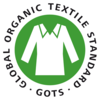
The Global Organic Textile Standard (GOTS) was developed with the aim to unify the various existing standards and draft standards in the field of ecological textile processing and to define world-wide recognized requirements that ensure the organic status of textiles, from harvesting of the raw materials, through environmentally friendly products.
Oeko-Tex Standards 
The Oeko-Tex Standard 100 is a globally uniform testing and certification system for textile raw materials, intermediate and end products at all stages of production.
The certification covers multiple human-ecological attributes, including harmful substances which are prohibited or regulated by law, and chemicals which are known to be harmful to health, but are not officially forbidden.
Along with the product related Oeko-Tex Standard 100, the Oeko-Tex Standard 1000 is a testing, auditing and certification system for environmentally-friendly production sites throughout the textile processing chain. To qualify for certification according to the Oeko-Tex Standard 1000, companies must meet stipulated criteria in terms of their environmentally friendly manufacturing processes.
ISO 14000 standards 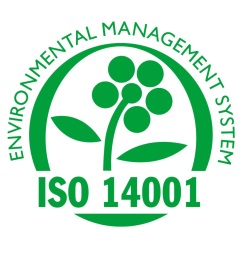
Many businesses are already ISO 9000 Quality Standards Certified. Along the same format, the ISO 14000 is a series of environmental management standards developed and published by the International Organization for Standardization ( ISO ) for organizations. The ISO 14000 standards provide a guideline for organizations to systematize their environmental management efforts.
SMaRT Sustainable Products Standard 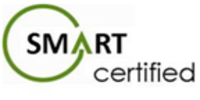
SMaRT Sustainable Products Standard is based on transparency, using consensus based metrics and life-cycle analysis. It also has in place rules which prevent industry trade association dominance. SMaRT main components include sustainability, energy conservation, and renewable energy.
Cradle to Cradle (C2C) 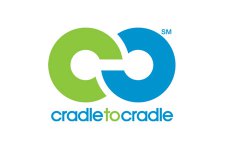
Cradle to Cradle (C2C) certifies that the product uses environmentally safe and healthy materials; however, the list of chemicals considered safe is proprietary. Therefore, C2C is not transparent and only certifies the product. Energy, water and social responsibility are also components of C2C.
GreenGuard 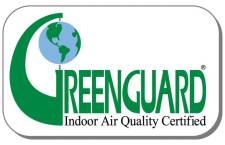
GreenGuard is not designed specifically for textiles, but it is often used for textile product certification. GreenGuard has developed proprietary indoor air quality pollutant guidelines based on government and industrial recommendations. Those products that pay the testing fee and pass the tests can become GreenGuard certified. GreenGuard was began as the for profit Air Quality Sciences (AQS). They are now a separate not for profit organization.
… and the winner is?
The NICCA group worldwide has chosen bluesign® as our third party environmental certification. Your business should to do a cost benefit analysis to determine which certification is best for your company. Many of the large name brand textile apparel retailers have adopted bluesign®. This has created an incentive, and sometimes requirement, for downstream textile suppliers to also adopt bluesign®.